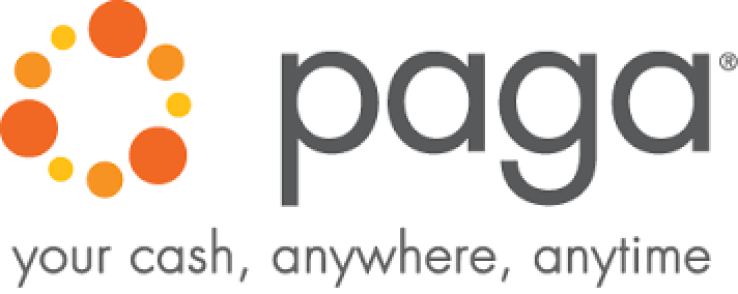Nigerian Payments App Paga May Be Africa’s Next Unicorn

Nigeria’s biggest mobile payments company is vying to become Africa’s next unicorn, and its ambitions now stretch beyond the continent.
Paga, whose backers include U.S. billionaire investor Tim Draper and former Goldman Sachs Group Inc. economist Jim O’Neill, boasts 17 million unique users including tech entrepreneurs, businesses and individuals in Africa’s most populous nation.
Modeled after PayPal, it processed $2.3 billion worth of transactions in 2020 and $8 billion during the past four years, according to Tayo Oviosu, the company’s chief executive officer who founded it in 2009. Paga could reach a valuation of at least $1 billion “in the next year or two,” Oviosu said in an interview.
Tech unicorns -- startups with a valuation of $1 billion or more -- are less of a rarity in Nigeria as companies catering to a large unbanked population revolutionize the way people transfer money and pay for goods and services. A crop of firms from Flutterwave to Interswitch have achieved that status.
Oviosu, who returned to Nigeria from the U.S. more than a decade ago with a Stanford MBA and experience at companies like Cisco Systems Inc., wouldn’t disclose the company’s current valuation.
But he’s already setting his sights outside his home country by looking to expand to Ethiopia and Mexico, where it could similarly facilitate payments for the millions who lack access to banking services. Paga’s foray into Ethiopia, Africa’s second-most populous nation, is planned for next year.
To expand Paga’s reach, the company is counting on what it considers a game-changer of a deal with Visa Inc. The agreement will provide for merchant solutions in Nigeria from this month, allowing payments by money transfer and a QR code among others.
“It has significant potential to grow our revenue,” Oviosu said.
Enlisting Agents
Central to Paga’s business is a network of agents who effectively perform the functions of a bank teller.
he West African nation, where 60 million people are among the unbanked, is embracing the boom in fintechs that are promoting inclusion through mobile payments. Many startups are concentrated in Yaba, a district in the commercial hub of Lagos that’s also attracted the likes of Facebook Inc. and Google.
The technology industry is also increasingly in favor with lenders in the economy of Africa’s biggest oil producer. The government has similarly taken notice, spending more on tech infrastructure to boost innovation and create jobs.
Given Paga’s growing business footprint and the prospects for additional fundraising, Oviosu thinks becoming a unicorn is only a matter of time.
“We are focused on making it simple for people to pay, get paid, shop and sell,” he said. “I know the runway to where we are projecting to be from where we are today.”
Deployed across Nigeria, the company’s 27,000 agents are registering new customers for Paga accounts and helping them process payments or put cash into a bank deposit. Paga is also making its programming interface available to tech entrepreneurs for payments while expanding its consumer business through the partnership with Visa.
The West African nation, where 60 million people are among the unbanked, is embracing the boom in fintechs that are promoting inclusion through mobile payments. Many startups are concentrated in Yaba, a district in the commercial hub of Lagos that’s also attracted the likes of Facebook Inc. and Google.
The technology industry is also increasingly in favor with lenders in the economy of Africa’s biggest oil producer. The government has similarly taken notice, spending more on tech infrastructure to boost innovation and create jobs.
Given Paga’s growing business footprint and the prospects for additional fundraising, Oviosu thinks becoming a unicorn is only a matter of time.
“We are focused on making it simple for people to pay, get paid, shop and sell,” he said. “I know the runway to where we are projecting to be from where we are today.”
SOURCE: YAHOO FINANCE
 Africas leading resource for digital financial services
Africas leading resource for digital financial services


comments